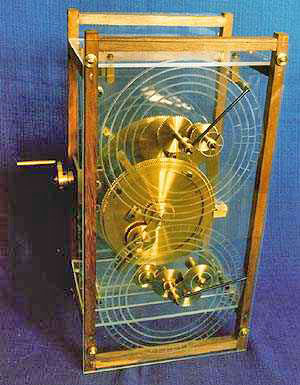A computer as we know it today is basically an automaton. Specifically, a deterministic finite state automaton: it can exist in a finite number of states, and there exist well-defined rules for shifting from any.? state to the next. A classical Turing machine with an infinitely-long tape is actually an infinite state automaton; but it can be shown that any program that completes in a finite amount of time requires only a finite length of tape anyway, so we can just about scrape through, if those are the only programs we consider.
The Industrial Revolution also brought about tremendous social change. Such as Trade Unions; the creation of a whole new class of workers brought with it the need to protect their interests -- fair wages, paid in cash, not vouchers that could only be spent in certain outlets; reasonable hours, rest breaks; safe working practices and protective equipment; refreshments; hygiene and sanitation; terms of employment that could not be varied capriciously on short notice, and so forth -- against the worst excesses of the industrial capitalists.
The city I call Home grew up with the arrival of the railways; and my own modest residence was built, not for railway workers but for workers in any of the newly-created secondary industries that sprang into being with the coming of the railways. The establishment of trade links meant that there were now goods to be made, bought and sold; thus needing factories to make them, warehouses to store them and the raw materials from which they were made, offices to organise the administration, shops, pubs and restaurants for the workers to spend their newly-earned money, schools for the next generation of workers, hospitals for the sick, churches for those so inclined, banks to look after the money. And all the staff to work there, not to mention janitors to clean up after them and caterers to feed them. For awhile at least, there would be tough manual labour building all the new factories, stores, offices and homes.
All those jobs! All that money! All those people! Must have been one hell of a big, scary trip .....





